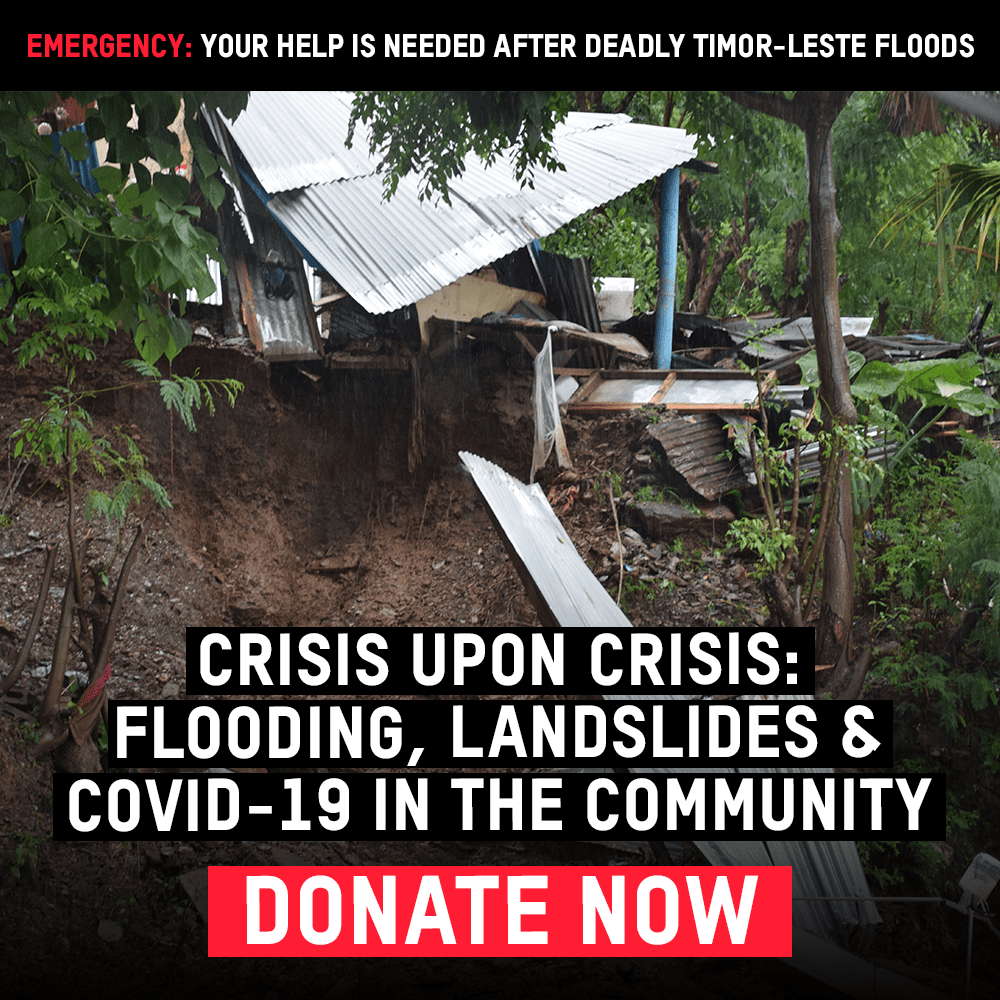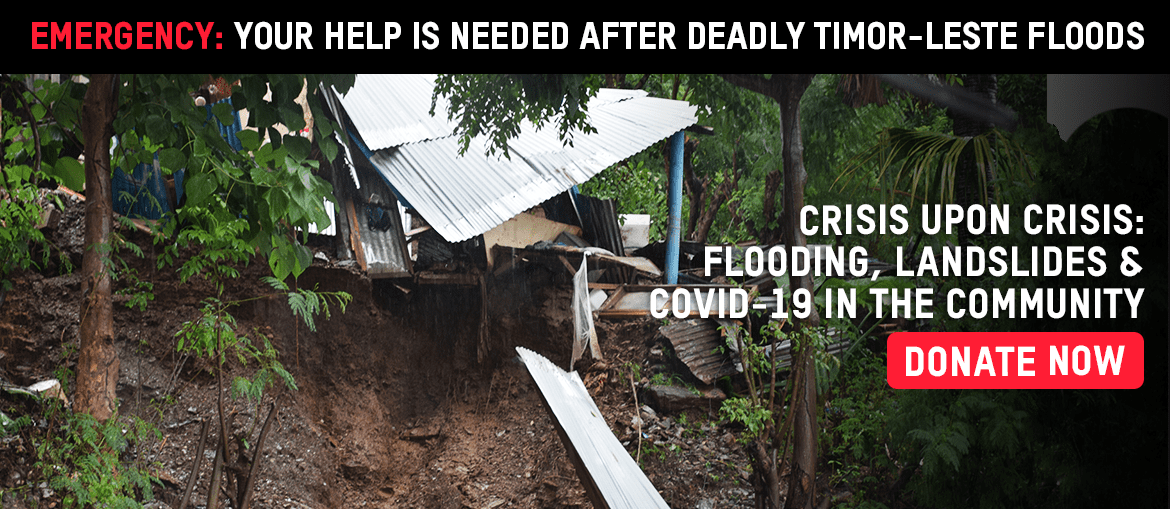

imagine experiencing a flash flood that destroys your home and sweeps away your livelihood.
You and your family must move into a crowded evacuation centre, which is the optimum environment for diseases to spread. With coronavirus in the community, you are caught between crises.
Your support is urgently needed for our neighbours in Timor-Leste.
Heavy rains, flash floods and landslides have destroyed houses, businesses and many of the medical supplies used in the ongoing coronavirus response. More than 10,000 Timorese people are affected and need your immediate help. This event is without doubt the worst flooding the country has seen in recent history.
The current coronavirus situation adds complexity and risk to the response. It is difficult to follow coronavirus precautions in evacuation centres where there are few masks, limited to no social distancing and no available clean water for handwashing.
You can empower families in Timor-Leste to rebuild their lives after these devastating floods. Your donation can help to provide access to safe water, sanitation and hygiene at Evacuation Centres as well as improve access for people with disabilities to critical services. Your support today will ensure that this urgent life-saving work can happen.



